Personal Development
A Buddhist‘s Way to calm down your Critical Inner Voice
03/06/15

Learn how to calm your critical inner voice, the part of your personality that is always busy confronting you with your faults in character or telling you what you did wrong. Continue reading ...
How to gain Vital Energy by clearing out Social Contacts
13/01/15

Although it may not be easy: I can only recommend a regular review of all personal social contacts. Here's why. Continue reading ...
A New Year – a New Life? Positive New Year’s Resolutions and how one actually keeps them
05/01/15

Self-control is obviously the most important prerequisite for hanging tough with good resolutions. Breaking with potentially bad or unhealthy but longstanding habits requires lots of will power. Continue reading ...
Career Guidance in a Global World
05/06/13

At iPersonic we believe that career guidance should be made available to everyone. A fulfilling career is the cornerstone of a fulfilled life. Continue reading ...
Life at a Crossroads
29/01/13

Popular wisdom states: „There are no sign posts on the crossroads of life.“ That often comes to mind when I sit in my practice with people who are facing important decisions in their lives and just don’t know where to go. The same obviously applies when I face the same dilemma, myself. Sooner or later and more or less frequently all of us find ourselves on those life’s crossroads when we have to decide on an alternative and at the same time bid farewell to other opportunities. Changing the job or better not? Continuing a relationship or put an end to it? Emigrate or preferably stay in my native country? Having a child or not? The choice between professional education or an academic career. And . . . and . . . and. Continue reading ...
Start the New Year with a Letter to Yourself
14/01/13

Well, we did it again! New Year’s Eve is behind us and the New Year is upon us – hopefully all went well for you? Most of you probably threw a proper New Years Party - maybe even accompanied by some fireworks. All in all, for most of us the New Year’s celebration is a rather noisy and merry affair fortified by the proper beverages.
Continue reading ...
Tough Time for Realists
06/12/12

I have always thought that our modern world tends to fit certain ipersonic personality types rather more than other profiles. Ursula Huber’s lead article in the recent “Psychologie Heute” (Psychology Today) again reminded me of this subject and in a way confirmed my reflections. In her intro she writes: “The world is an uncertain place. One cannot depend on anything any longer: not on the Euro, not on love, not on politicians, not on job security.” And she quotes the psychologist Ernst-Dieter Lantermann at Kassel University who summarizes: “ Modern living conditions are precarious living conditions.”
Continue reading ...
Communication Skills Part 2: Pay Attention, catch the Meaning!
25/06/12

Do you remember the first blog entry about communication skills? You may have already figured out with which one of the four “ears” you hear best? Or which of the four aspects are pivotal, when you “send” a message yourself?
Continue reading ...
How to Dominate your Inner Drivers
04/06/12
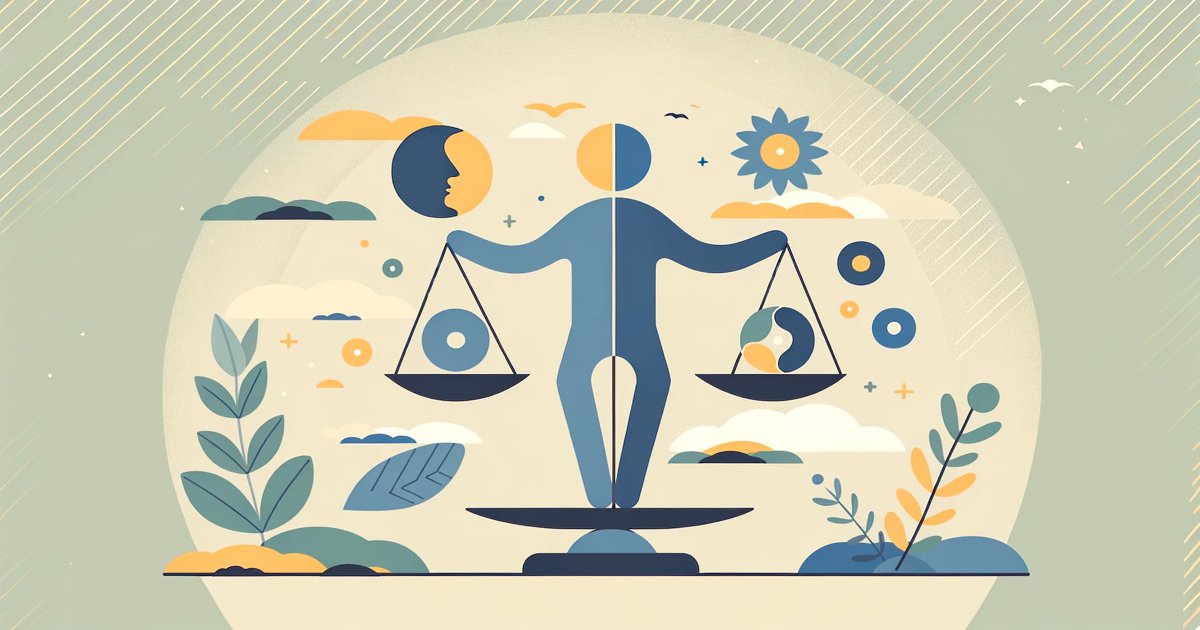
You may still remember the blog posting where I introduced you to the five inner drivers defined by the transaction analyst Taibi Kahler as being typical for human self-control. Today the subject will deal with enabling you to put your personal inner drivers in their place when they tend to overdo driving you.
Continue reading ...
Communication Skills Part 1: You don’t hear what I say . . . or vice versa
21/05/12
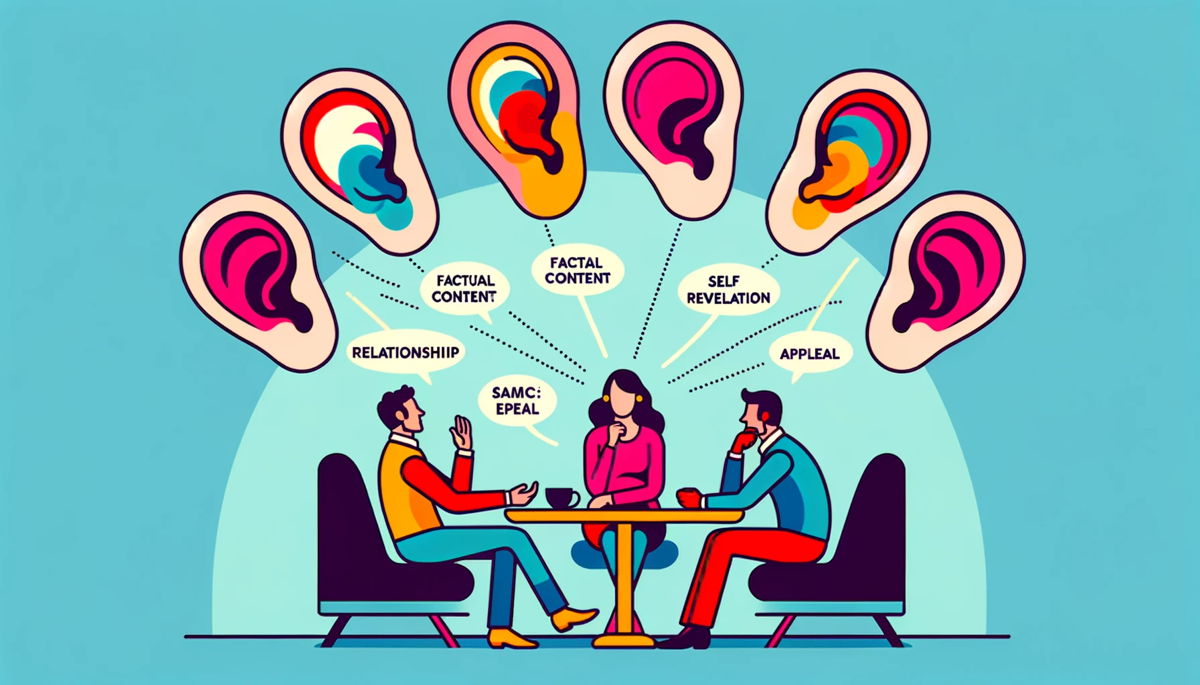
Just as there are different personality types, there are naturally different ways to communicate. An extroverted person talks a lot, preferably about him/herself, easily establishes contact and generally has no problem to assimilate lots of information. An introverted person, on the other hand is more reserved, does not reveal a lot of him/herself and tends to retreat in the face of too much exterior stimuli. Over time, in the course of this blog we will deal with communications idiosyncrasies of the different types. There are two objectives: First of all it helps to recognize how someone prefers to communicate because then one is able to adjust to his/her respective style and there is a better chance for a productive exchange. Secondly it is always interesting to analyze one’s own communication strengths and weaknesses and possibly tweak them a little to be more successful in everyday life and become more confident in dealing with others.
Continue reading ...
Stress and Relationships Part 2
09/04/12
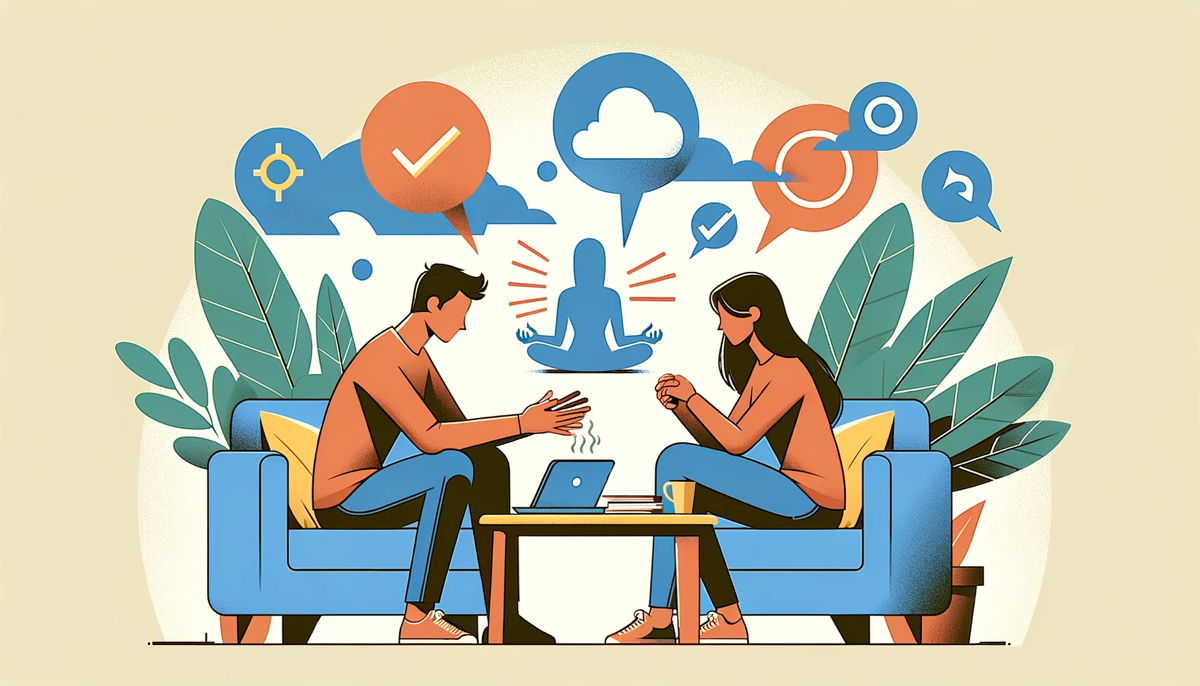
In my previous article on the subject Stress and Partnership I already reflected on about how much your partnership can be taxed by stress. As promised, here are now the first ideas illustrating what good stress management in the relationship can look like. Most of them are out of, or are based on the already mentioned book by Guy Bodenmann (that I would like to again recommend in the strongest terms, but unfortunately only exists in German). Continue reading ...
Stress and Relationships
26/03/12

We generally tend to be unaware that all those major and apparently unimportant everyday stress experiences cumulatively have an impact on us and that includes an impact on our relationship: A strenuous, time consuming day at work, demanding children, the partner’s varying needs and sensitivities, hassles with the colleagues and/or the relatives plus all those small annoyances like the washing machine giving out, a missed appointment, noisy neighbors, a traffic jam on the way home, the lost wallet ...
Continue reading ...
My Blind Spot - The Difference between Self-Awareness and External Perception
08/03/12
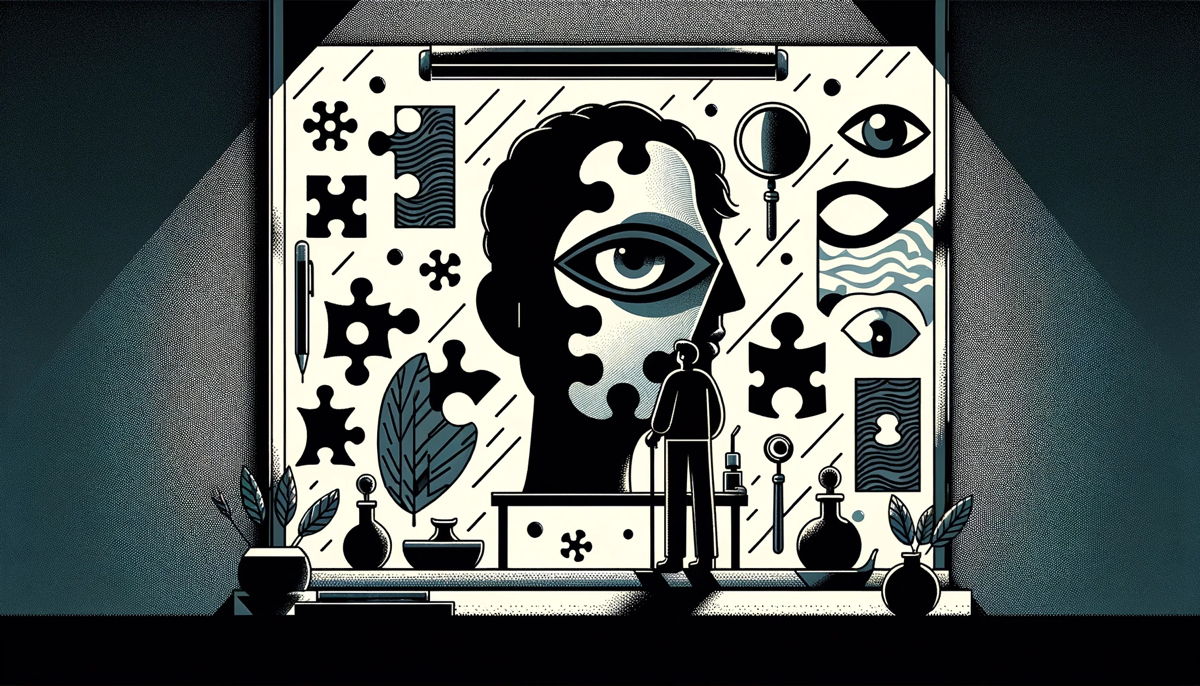
iPersonic continuously deals with the question of one’s own personality and identity and how we see others and ourselves. This represents the intriguing question as to how much and to what extent we are even capable of truly assessing ourselves. Where do we see ourselves as we actually are and how others perceive us? And where may we possibly even be incapable to see ourselves as we really are?
Continue reading ...
What is Personality?
09/01/12

Philosophers, authors and scientists have been challenged since ancient times by the question as to what constitutes human personality. The physician Hippocrates (460 – 377 BC) developed one of the oldest personality models we know. He divided humans into four different temperament types: sanguine, phlegmatic, choleric, and melancholic and attributed not only certain character traits but also the propensity for certain diseases to each of them.
Continue reading ...
How Idealists can find Meaning in their Lives
17/08/11

The primary aspiration of all Idealists is self-discovery and self-actualization. If you are an Idealist, life represents one continuous search for a deeper meaning: Who am I? Where am I going? What is my destiny? This already describes the most important pillar of your personal concept of happiness: The meaning of life! Continue reading ...
Idealists need a Vocation, not a Profession
09/08/11

There are for idealistic personality types in the iPersonic Typology: the Spontaneous Idealist, the Dreamy Idealist, the Engaged Idealist and the Harmony-seeking Idealist. You can take our free personality test to find out if you belong to one of those iPersonic personality types. If you do, only a profession that is important and worth your while is going to satisfy you in the long run. The latter was not intended to imply something material. Since you have a profound personal value system and your need for meaning in all areas of life is strong you must make sure that this aspect becomes a part of your professional every day life, as well. A pure bread-and-butter profession you only practice to make a living and without conviction – or, even worse: contrary to your innermost conviction - is a guarantee for unhappiness. Therefore, you should ask yourself whether your today‘s profession satisfies you in this regard or whether there is need for a change.
Continue reading ...
About the iPersonic Personality Test
29/07/11
Our free personality test is extrapolated from a typology which was originally developed by the psychoanalyst Carl Gustaf Jung and later differentiated by Isabel Meyers and Katherine Briggs. Continue reading ...
Introverted - and happy in love
11/07/11

Besides their profession, for most people a partnership is the most important component of their life. Research proves that a lasting, happy loving relationship is actually one of the most important, if not the most important key to individual happiness. Most of us appear to know this instinctively and therefore – except for a very few solitarily folks among us – at some point most of the singles sooner or later are again looking for a (new) partner. Introverts admittedly often hesitate longer than extroverts. For one that is because they can deal better with being alone and therefore value the advantages of being single more than extroverts. Apart from that, for them it is difficult to approach other people – and that is naturally the basic prerequisite when one is looking for a new partner!
Continue reading ...
Introverted – and happy in your Job!
27/06/11

In many respects an introvert’s life in today’s society is tough. In our western culture, the qualities of the extrovert are at first glance much more valued than those of the introvert: Quick, competitive, socially competent, action orientated, assertive, sociable, active … the list is almost endless. “Just do it!” the athletic company Nike’s slogan puts a point to it: Get going, move, and act! And that with a healthy dose of self-confidence, optimism, candor and a touch of the old elbow action, if you please. Then you are successful, professionally as well as privately. Then the world is your oyster, people admire you and seek your company. You are the radiant center of the party and no one has the chance to miss your professional achievements. You don’t just take the initiative and strive for quick results but you are also familiar with, and heed the old proverb: “You have to blow your own trumpet.” You cultivate contacts and networks for all they are worth and not merely in real life, in the virtual sphere of social networks, as well. You are the master of the extraversion claviature and work it with a fine ear for society’s demands and rules.
Continue reading ...
Introversion - a Health Risk?
15/06/11

Are you one of the introverts among our personality types? (Take our free personality test, if you're not sure!) If that is the case, you are a person who prefers to recharge his/her batteries during his/her alone time – you are one of the famous “still waters”. Because you won’t let others get truly close to you, for them it is probably not all that easy getting to know you better. You are a better listener than speaker and take your time to think before you talk. Because too much company tires you, you probably prefer a few selected friends. As opposed to the extroverts, you manage social contacts better in homeopathic doses. Retreating and being by yourself are your elemental sources of energy. Continue reading ...
40 Tips for a Happier Life
03/05/11
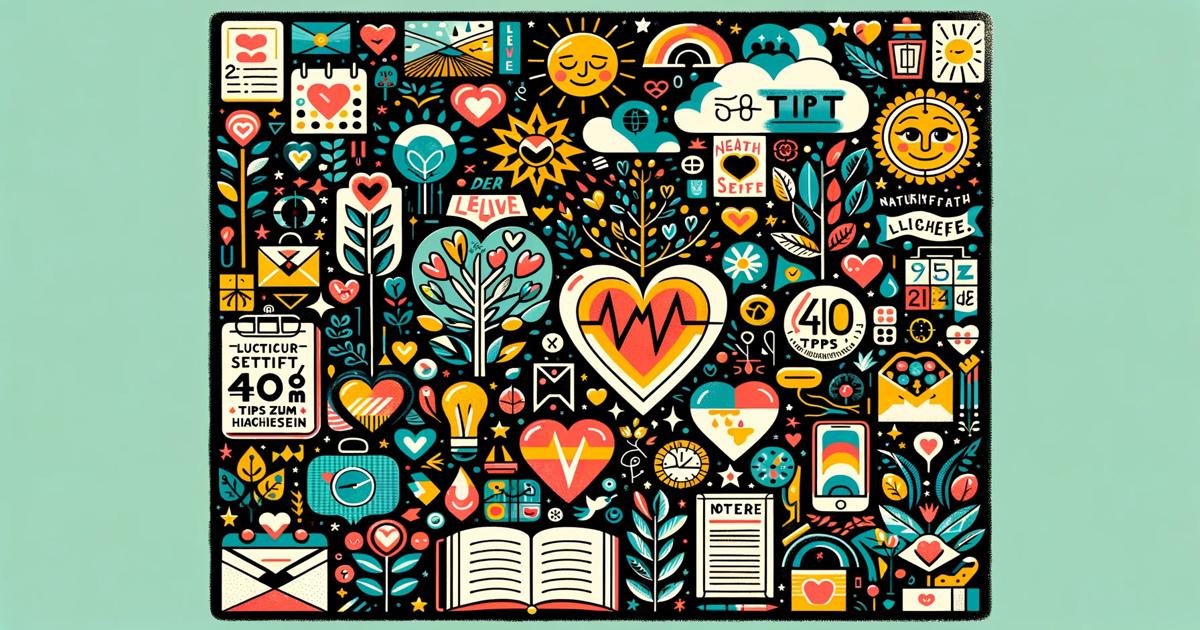
Since the end of the 90s a new branch of the science, also known as Positive Psychology has been dealing with the essentials for happiness. In order to help you find out which happiness potentials are maybe lying idle with you, I have summarized the 40 most important insights on the subject “happiness” in an abbreviated format in the following “checklist”. Continue reading ...
Give your life a meaning
15/04/11
As the only living creature aware of its finiteness, and so as not to despair, the human being must give its existence meaning. Continue reading ...
Am I a burnout? What can I do about it?
02/04/11

The concept Burnout (syndrome) has become a major element of our every day vocabulary. The Californian psychologist Christina Maslach first examined it in 1976. She identified the syndrome’s three components. Continue reading ...
Do what you enjoy doing!
24/03/11

The American psychologist Mihály Csikszentmihályi did research on the subject of happiness in the middle 70s and came to the conclusion that people experienced the most happiness when they were in a state that he called „Flow“. Flow means that we are totally immersed in an activity while everything else becomes secondary. Time and space, even our own needs recede and lose their significance. We are totally concentrated, the task completely absorbs us, and we merge with whatever we are doing, so to speak. This is indeed an important character strength for the achievement of your happiness: Enthusiasm! Enthusiasm represents the ability to meet the world with excitement and energy, to be totally involved with what one happens to be doing at the time. Continue reading ...
How career profiling can improve your job satisfaction
16/03/11

As in all other areas of your life, your personality plays a decisive role in the things you enjoy or don’t enjoy. It plays a role in why you are more successful in a particular area with less effort and why some areas might be more difficult for you and require more effort. Your personality affects how you affect others and how you see them. In addition to your personal partnership, your profession should ideally be the second sustaining mainstay in your life. Continue reading ...
Gratitude is a key to happiness
23/09/10

On the first weekend of October most German religious communities again will celebrate Thanksgiving. (In the USA it is not celebrated until the end of November although the basic idea is quite similar.) Here in the rural area where we live as well as in the cities people are doing their very best to decorate church sanctuaries with fruit, vegetables and flowers. In my opinion it represents a wonderful tradition because at least once a year it breaks with this matter of course habit of our, usually thoughtless daily excursions to super markets and stores. We are rarely aware that compared to the rest of the world, we are magnificently provided for. Continue reading ...
How to start living your personal, happiness-supporting lifestyle
22/07/10

In recent years hardly any other psychological field of research has grown as intensively and has received as much attention as the so-called positive psychology. In the early 90s of the last century, a group of psychologists asked themselves why so much attention had been focused on the origin of psychiatric disorders and their elimination by way of therapies, and very little attention had been dedicated to the origin of mental health and the circumstances supporting it. These psychologists wanted to change this, and to that end, began to increasingly dedicate themselves to researching the prerequisites of happiness, contentment, and mental health. Continue reading ...
How to fight procrastination
21/07/09

Whatever you can do today can surely be put off till the day after tomorrow as well … or something like that. Who of us is not familiar with that thought and especially where it concerns something unpleasant, tedious or boring or, to make matters worse, if there are a lot more titillating alternatives begging for our attention. Not a problem if it happens occasionally, just as long as it does not get to be the rule. On the other hand, there are people with whom putting things off has become chronic and in extreme cases manages to mess up their entire life. The technical term for the tendency to continuously postpone things is procrastination; there are folks who actually have to be treated with psychotherapy because they just can’t manage to begin or complete their tasks on time. In those cases writing a dissertation can take years…
Continue reading ...
Analyzing your self-image (Self Confidence, Part 4)
14/07/09

During the last time while on the subject of self-confidence I proposed that you establish a “Benevolent Inner Observer” as the counterweight to you “Inner Detractor” within yourself. It is meant to help you treat yourself a little more leniently and gently in your normal every day life as well as in times of stress and frustration, than you probably normally would. Most people with low self-esteem are very good at tearing themselves down and calling themselves names because they are not used at motivating and building themselves up. Today I would like you to take one step further and analyze your entire self-image one more time. If I am not totally off base with my assessment, you have been lots more generous with the darker colors while you simply ignored a lot of brightness and beauty.
Continue reading ...
The Benevolent Inner Observer (Self Confidence, Part 3)
02/07/09

Today I am back to one of my favorite subjects on this Blog: The subject of self-confidence. Part 1 dealt with all sorts of reasons for a lack of self confidence, while in part 2 you already received your first tips how you may be able to question a potential innermost negative dialogue with yourself and how you may be able to replace it with one that should be more helpful. With this contribution I would like to try and give you some support in dealing a little more friendly with yourself in every day life. Continue reading ...
Dealing with negative thoughts (Self Confidence, Part 2)
02/06/09

Give your feeling of self worth a new, positive direction by interrupting your own innermost destructive dialogue with yourself and making it more constructive. Continue reading ...
How to find a job that makes you happy
08/05/09

On iPersonic we do offer you important resources for your dream job search with our career test and our iPersonic Career Profile. An article I recently came across demonstrates the desperate need for this. Its content with the heading “Every third person dislikes his/her job” shocked me. The results of a representative survey conducted on behalf of the German Labor Union gives food for thought:
Continue reading ...
Learning to trust yourself (Self-Confidence, Part 1)
04/05/09

During recent conversations with my clients I frequently thought about how many of their concerns and emotional hardships were rooted in the concepts of self-confidence, self- respect, feeling of self-worth – or rather the lack of it. Whether you are the young man who is tired of being single but has lost almost all hope because he really can’t find anything worth loving in himself. Or the woman in her best years whose children are past the most difficult stages and now nothing stands in the way of her return to professional life – except her conviction that she won’t be up to a work day and its demands. Or the pretty girl in her mid twenties who has postponed a vital operation for much too long because the thought of a scar disfiguring her otherwise perfect body is just too terrible to contemplate. Somehow it’s always the same thing: “I don’t like myself.” “I am not good enough the way I am.” “I am useless unless I am perfect.” “I am incompetent.”
Continue reading ...
Discover your Strengths
03/03/09

As you know, our 16 Personality Types are distinguished by totally different preferences, dislikes and naturally also different strengths (and development potential, but that is not our subject today). For instance, the “Thinkers” are outstanding analyzers who can handle abstract and complex subjects especially well and for whom even the most complicated problem solutions are a breeze. The “Idealists” usually possess a special creativity and a sparkling charisma that frequently make them into gifted artists and fascinating conversationalists. One can only envy the “Doers” for their inexhaustible energy and drive just as for their uncomplicated pragmatism that stands them in good stead during tumultuous times. And nobody has as much staying power and determination where his/her objectives are concerned as the “Realists” who are also blessed with a sound common sense. (You can determine your professional strengths in our free career test). Continue reading ...